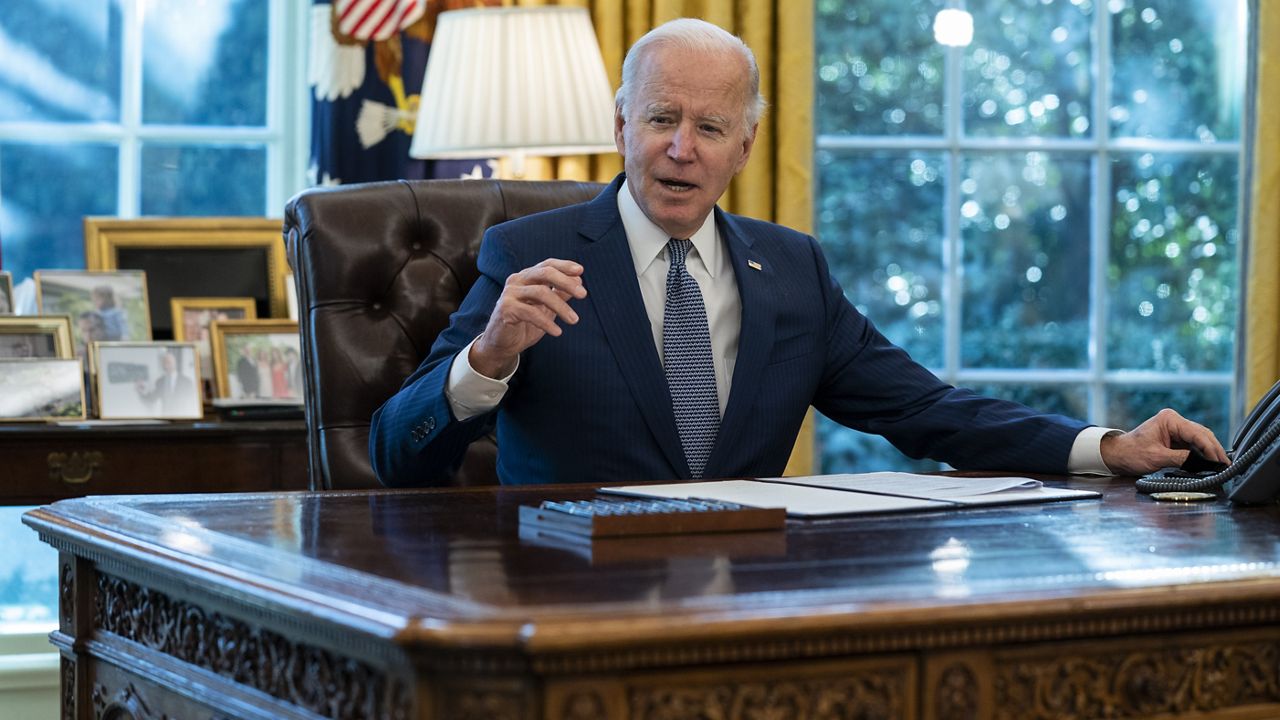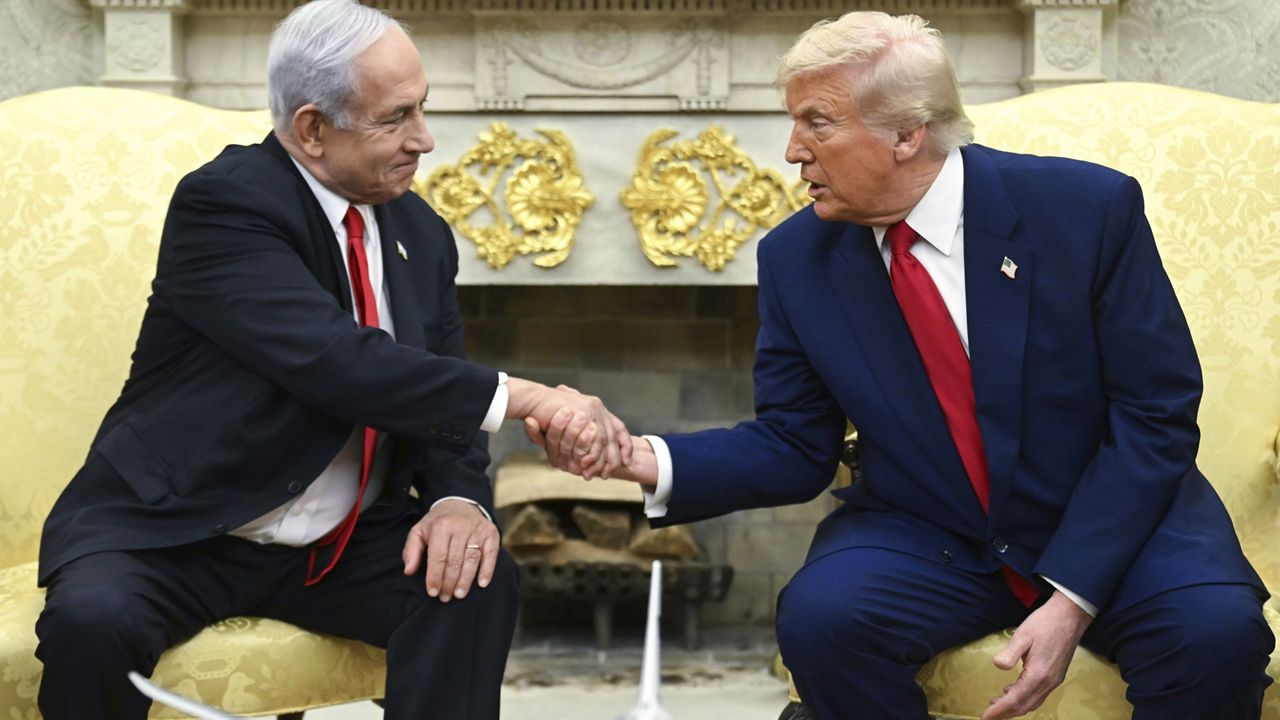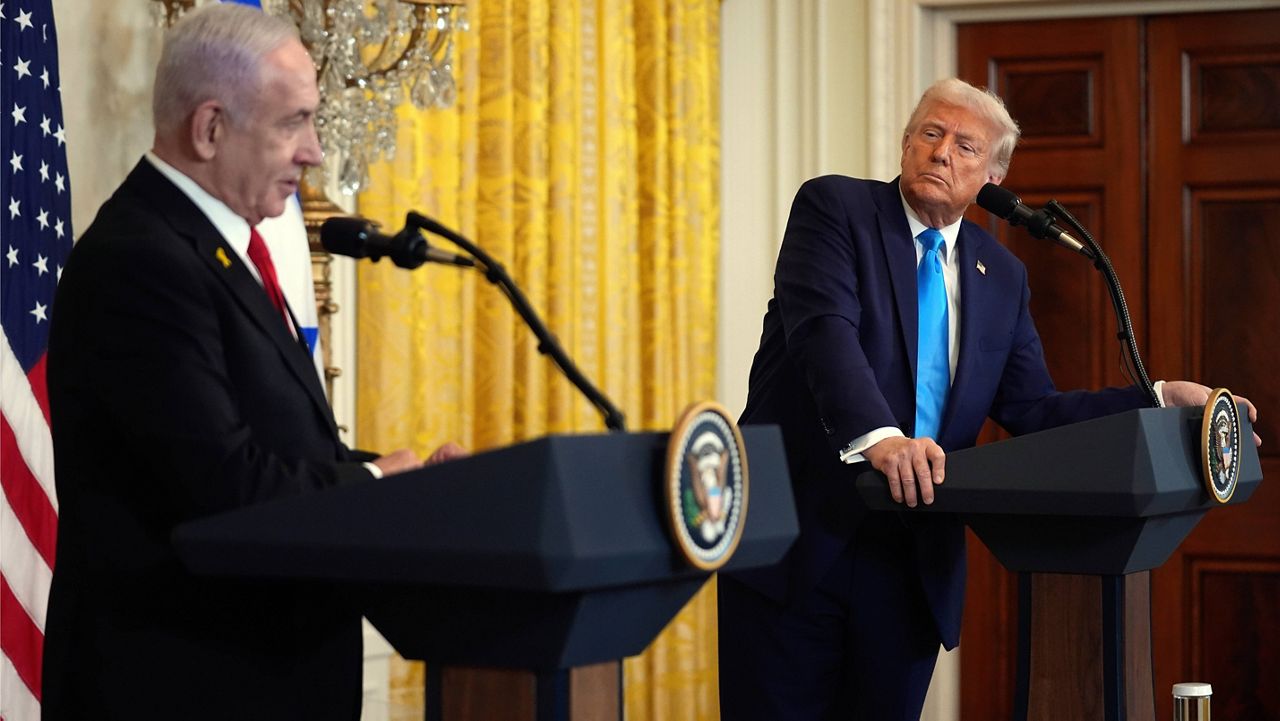The White House announced Wednesday that it is developing a landmark national strategy to combat Islamophobia, a first-of-its-kind initiative similar to the blueprint the Biden administration developed to combat antisemitism.
But the effort comes with scrutiny as President Joe Biden's administration faces skepticism from many Muslim Americans for its staunch support of Israel's military assault on Hamas in Gaza.
"President Biden ran for office to restore the soul of our nation," White House press secretary Karine Jean-Pierre said in a statement. "He is unequivocal: there is no place for hate in America against anyone. Period."
"Today, he and Vice President Harris are announcing that their Administration will develop the first-ever U.S. National Strategy to Counter Islamophobia in the United States," she continued. "We look forward to continuing our work with community leaders, advocates, members of Congress, and more to develop the strategy ... and counter the scourge of Islamophobia and hate in all its forms."
The effort, Jean-Pierre said, will be a joint partnership between the Domestic Policy Council and the National Security Council. A White House official said that the announcement follows Biden's directive last year to create an interagency policy committee to coordinate federal efforts to fight Islamophobia, antisemitism and other forms of bias and discrimination in the U.S.
Incidences of anti-Jewish and anti-Muslim hate have skyrocketed in the United States and abroad since the surprise Oct. 7 attack by Hamas against Israel that killed more than 1,400 people and saw hundreds taken hostage, and Israel's response in Gaza, where it has pledged to use force to "destroy" Hamas. One of the most prominent attacks in the U.S. was the killing of 6-year-old Wadea Al-Fayoume and the wounding of his mother in an attack in Illinois that prosecutors allege was driven by Islamophobia.
"For too long, Muslims in America, and those perceived to be Muslim, such as Arabs and Sikhs, have endured a disproportionate number of hate-fueled attacks and other discriminatory incidents," Jean-Pierre said. "We all mourn the recent barbaric killing of Wadea Al-Fayoume, a 6-year-old Palestinian American Muslim boy, and the brutal attack on his mother in their home outside Chicago."
In an Oval Office address earlier this month about the war in Israel, Biden stressed the need to denounce both antisemitism and Islamophobia.
"Here at home, we have to be honest with ourselves," he said. "In recent years, too much hate is given too much oxygen, fueling racism, a rise of antisemitism and islamophobia right here in America."
"We must, without equivocation, denounce antisemitism," Biden added. "We must also, without equivocation, denounce Islamophobia. To all of you hurting, those of you hurting, I want you to know: I see you. You belong. And I want to say this to you: You're all America. You're all America."
Administration officials, during the meeting with a small group of faith leaders last week, indicated things were "in the works" for an anti-Islamophobia strategy, said Rami Nashashibi, the founder of the Inner City Muslim Action Network in Chicago and a participant in that session.
Nashashibi said he believed such an effort would be "dead on arrival" with the Muslim community until the president and administration officials forcefully condemn members of the far-right government of Israeli Prime Minister Benjamin Netanyahu who have openly called for the eradication of Palestinians from Gaza and until the administration more aggressively calls out hate crimes targeting Muslims and Arab Americans.
He and other leaders also want Biden to apologize, or at least publicly clarify, his recent comments in which he said he had "no confidence" in the Palestinian death count from Israel's retaliatory strikes, because the data comes from the Hamas-run Health Ministry.
The United Nations and other international institutions and experts, as well as Palestinian authorities in the West Bank — rivals of Hamas — say the Gaza ministry has long made a good-faith effort to account for the dead under the most difficult conditions. In previous wars, the ministry's counts have held up to U.N. scrutiny, independent investigations and even Israel's tallies.
White House National Security Council spokesman John Kirby said Tuesday that the administration is "not taking the Ministry of Health at face value" but he acknowledged there have been "many thousands of civilian deaths in Gaza" in the conflict.
Notably, a poll released Tuesday by the Arab American Institute found that Biden's support among Muslim Americans, a crucial group in key battleground states like Michigan, plummeted from 59% to 17%. An exit poll survey from the Council on American-Islamic Relations found that 69% of Muslims across the country voted for Biden over Trump in 2020.
In remarks Wednesday, Biden made reference to providing humanitarian aid to Gaza and the plight of the Palestinian people amid the war between Israel and Hamas. He emphasized that while the number of trucks with humanitarian aid getting into Gaza “continues to increase significantly,” it still needs to “significantly step up.”
“The United States is going to continue to drive humanitarian support for innocent people in Gaza who need help and they do need help,” he said.
The president reiterated his stance that Israel has the right and responsibility to defend its citizens, but to do so in a way that “prioritizes the protection of citizens,” which once again displayed the balance Biden is trying to juggle.
“We've all seen the devastating images from Gaza, Palestinian children crying out for lost parents – parents reasoning and writing their children's names on their hands and legs to be identified if the worst happens,” the president said.
Nashashibi also said the White House strategy could land flat at a moment when many Muslim Americans feel that advocacy stands for Palestinian self-determination is being unfairly lumped in with those espousing antisemitism and backing of extremists.
"That conflating is in great part contributing to an atmosphere where we could see even more deadly results and more targeting," he said. Nashashibi added, "The White House does not have the credibility to roll out an Islamophobia strategy at this moment without publicly addressing the points we explicitly raised with the president during our meeting."
Asked if the White House had a credibility issue, Simons, the spokeswoman, said the administration would continue its outreach efforts.
"We know that communities are feeling the pain of what's going on overseas and in a deeply personal way," Simons said. "And so we're going to continue to speak to these different communities underscore the work we're doing to get aid into Gaza and the conditions we're trying to set up to support a humanitarian pause."
Spectrum News' Maddie Gannon contributed to this report.







